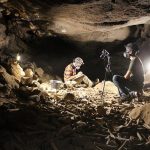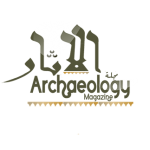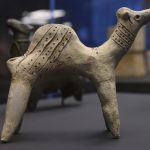


Like Britain, France has long resisted demands to return artefacts to the countries that claim to be their rightful owners, but Emmanuel Macron has signalled a change in policy.
“I want the conditions to be created within five years for the temporary or permanent return of Africa’s heritage to Africa,” the French president said during a visit in November to Burkina Faso, a former French colony in west Africa.
African artefacts, he added, “cannot just remain in European private collections and museums.”
Mr Macron has appointed Bénédicte Savoy, a French art historian, and Felwine Sarr, a Senegalese writer, to examine how artefacts now in France may be sent to African countries that claim them.
Pascal Blanchard, a historian, said Mr Macron “made European curators quake in their boots.”
But restoring objects of immense artistic and historical value to those that claim ownership is a legal and ethical minefield. “It’s one hell of a challenge,” Ms Savoy said.
Laws often prevent European countries from returning them, while conservationists have argued that artefacts could be damaged or stolen if sent to politically unstable countries lacking properly equipped museums.
France rejected demands last year from another former west African colony, Benin, to send back up to 6,000 royal thrones, sceptres and statues. Following Mr Macron’s comments, the issue will now be re-examined.
Mr Blanchard said Nigeria, with well-established museums, had “all the ingredients for solid restitution claims”, whereas other African countries such as impoverished Chad “do not currently have museums and cultural heritage services capable of restoring and displaying these objects”.
Marie-Cécile Zinsou, the daughter of a former prime minister of Benin, is campaigning for the restitution of the “treasure of our ancestors”, but she acknowledges that Africans themselves are divided on restitution.
“My best friend, the artist Romuald Hazoumé, a Beninois, is against it. He thinks we won’t be able to look after the artefacts. But I believe we will. This is a way for us to recover part of our history. It’s essential for young Africans to have access to their heritage.”
Ms Zinsou pointed out that the British Museum has agreed to discuss the issue of “plundered artefacts” raised in the Hollywood blockbuster “Black Panther”.
In the film, the character Erik “Killmonger” Stevens, played by Michael B. Jordan, steals an African “war hammer” from the British Museum after telling the curator, “How do you think your ancestors got these? Do you think they paid a fair price? Or did they just take it… like they took everything else?”
The Representative Council of France’s Black Associations, an umbrella group that defends African and Afro-Caribbean interests, wants France to return about 5,000 objects.
By: David Chazan, paris
from: Telegraph














